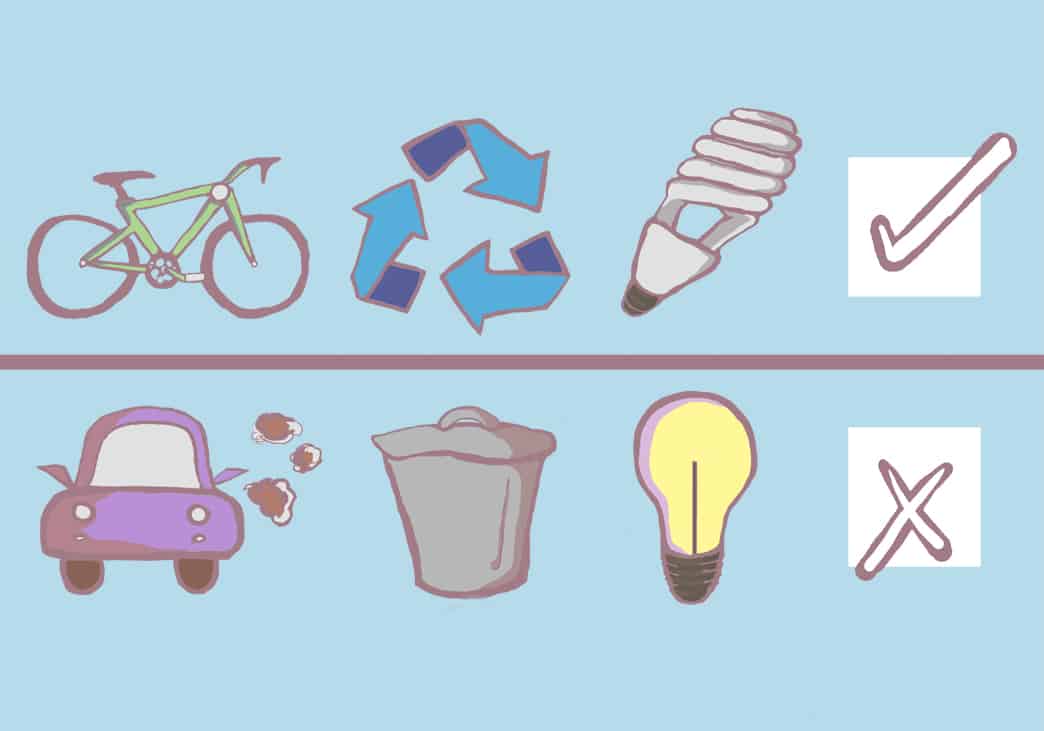Professor Christian Abizaid’s research focuses on the Amazon rainforest. While he researches the environmental impact of the Amazon’s trees being cut down, his participation in the Sustainability Office’s Green Champions program invokes “a process of self-reflection” as he reevaluates his own environmental impact.
This September, Abizaid pledged to reduce household waste through Green Champions, part of the university’s It’s Greener Here initiative, which is committed to making the university more sustainable. Green Champions also provides those interested in the program with resources on how to be green and tools to feel environmentally empowered.
Similar pledges are listed under one of four categories: waste, health, water, or energy. According to program coordinator Jessica Dawe, these categories encompass how each person impacts Earth, and the breakdown makes pledging less daunting.
Pledges range from unplugging all electronic devices when not in use to adopting a plant-based diet one to four times weekly. While current pledges are for this month, anyone can get involved with Green Champions throughout the year.
More than 700 students have already pledged at Green Champions’ frosh events or online, while seven pledgers are featured on the Green Champions website. On this blog, featured champions like Abizaid document their pledge progress.
The university’s Sustainability Office, which launched in 2004, developed the Green Champions program last winter, following a general green lifestyle pledge program last fall. One goal of the program is to demonstrate that anyone can be green and environmentally conscious regardless of which subjects they study.
Dawe said the university community has been generally receptive to Green Champions as they “learn about how they can make modifications to their own lifestyle.” According to Dawe, staff members often want to learn more about the program after they see their colleagues participate.
Dawe hopes the program will show people that environmental action doesn’t have to be scary and that there are environmental leaders across different faculties, offices, and student groups. She expressed hope that the program will inspire conversations with peers, family members, and friends, and eventually snowball to create a larger conversation about climate change.
Abizaid, too, hopes for long-term impacts of his month-long pledge and committed to continue living sustainably after September. He also got his children involved with the program at home. For instance, he and his children measured how much water is used in a bath versus in a shower.
“Anything we do on this Earth has an impact,” Abizaid said.
Green Champions also allows students to see Abizaid and other faculty members as people who are making an effort to be greener in daily life and not just as professors.
“If at least one person goes to the website and can relate somehow and decides to make even a small change in their lifestyle, then it’s good,” Abizaid said.


